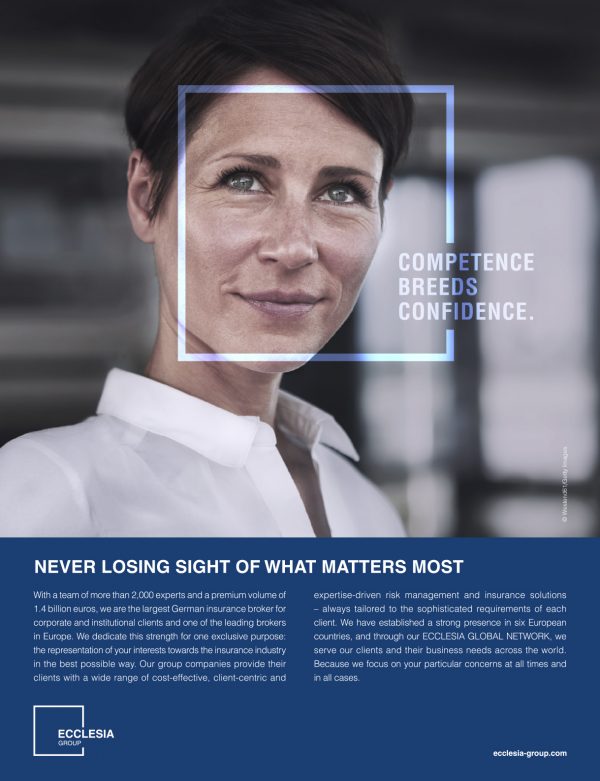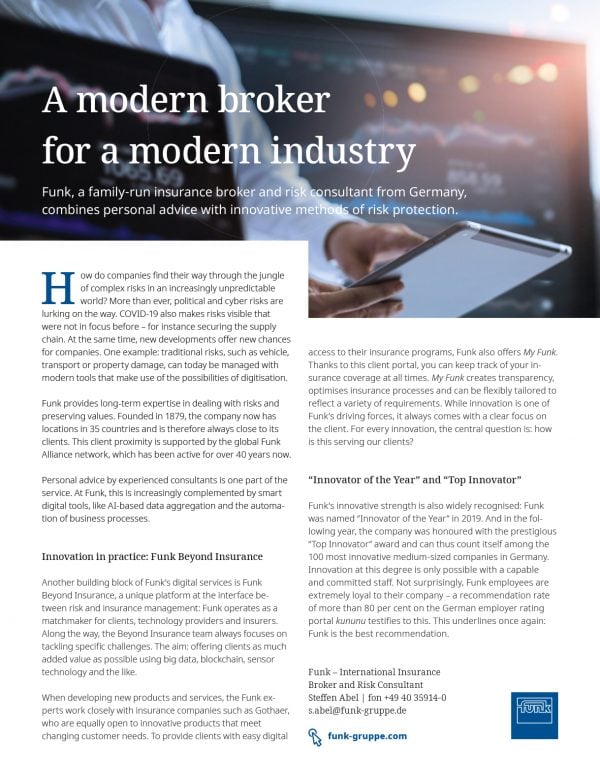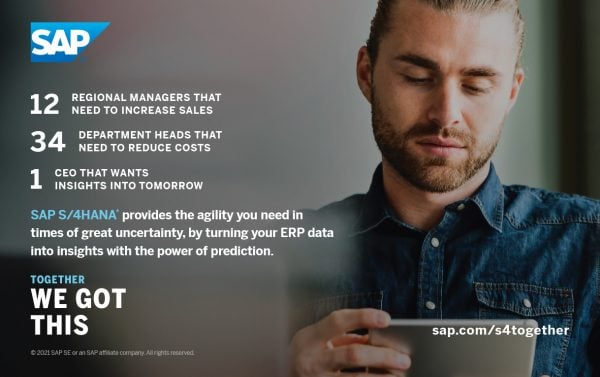Oliver Schoeller has a valuable piece of advice for other leaders – utilise the knowledge of your team. After two and a half decades in the insurance sector, and now, at the top of his game as CEO of industry frontrunner Gothaer, it’s clear that he knows what he’s talking about. So, take note.
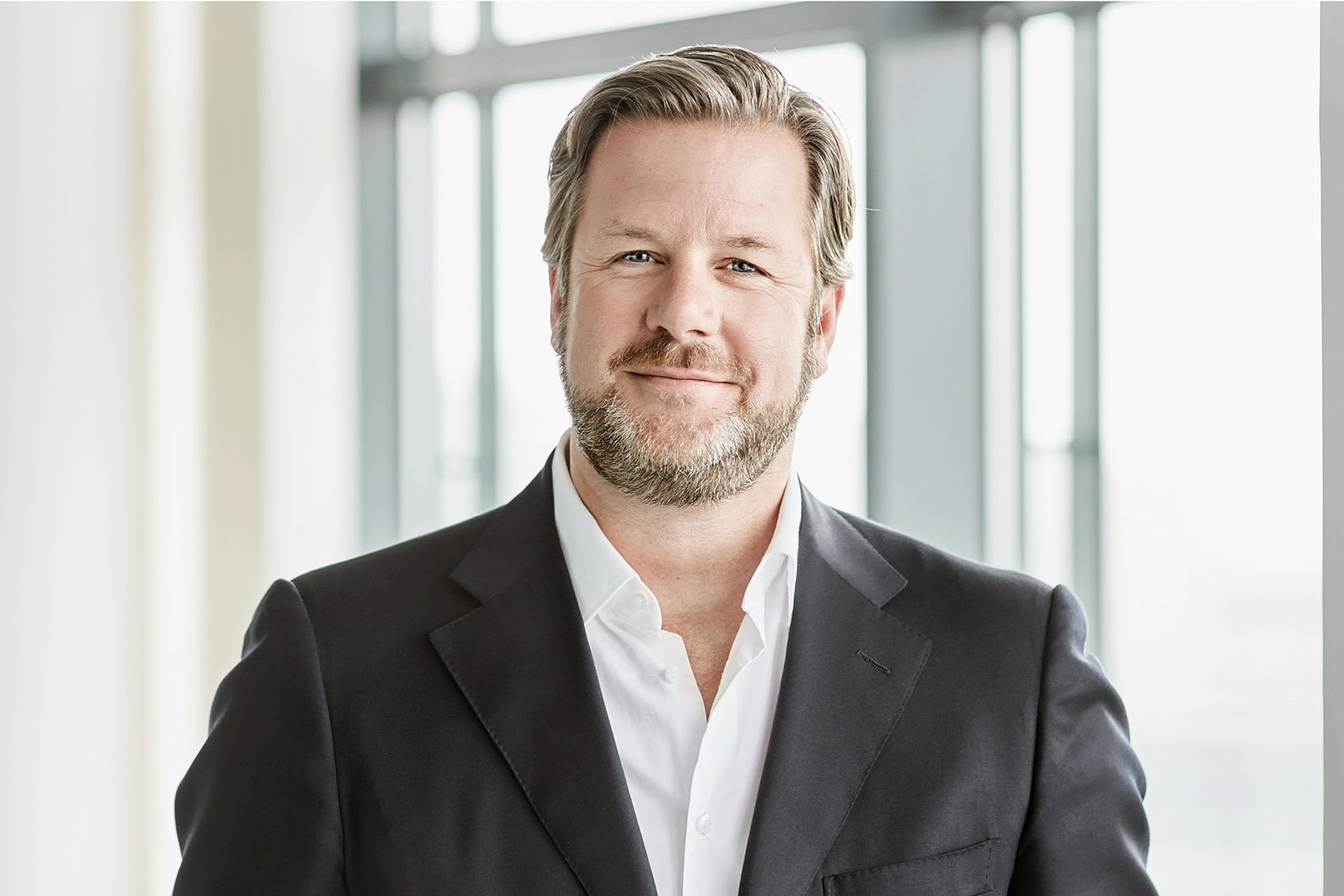
“The world is getting so complex and moving so fast that the generations of CEOs who think they know everything have no future,” he explains.
“We have to rely on people within our firm. I always say that if you think you’re the smartest person in the room, you’re in the wrong room. There are so many smart people here that we’re much better off listening to them and coming up with results together. That is something that is part of the DNA of Gothaer, and is a necessity for the future as well. This is something that I really want to build on.”
Last year saw Gothaer celebrate its 200th anniversary – an enormous milestone and testament to the strength of the company and its team. From humble beginnings in 1820 as a company run by merchants for merchants, in the town of Gotha, the business grew, and today boasts about 4.1 million clients, in the private and small- to medium-sized enterprise sector.
And Oliver insists that lasting two centuries is no fluke – rather, he credits the entrepreneurial spirit and resilience of the employees for the enduring success of Gothaer and its legacy.
“We’ve survived two world wars, huge financial crises and various redesigns of the entire society,” he tells The CEO Magazine.
“Gothaer was originally based in East Germany but at the end of World War II, when the management could see that the Russians would forbid insurance as a private company, employees were taking all the documents at night into British-controlled West Germany.
“That’s just one example of how employees have taken the fate of this company into their hands and transformed it for a better future. That’s something that is deeply rooted in our DNA. People are here to drive this company into the future. My role as CEO is really to orchestrate the energy that is already there and make sure it’s all heading in the same direction, rather than simply creating it.”
My role as CEO is really to orchestrate the energy that is already there and make sure it’s all heading in the same direction, rather than simply creating it.
A match made in insurance heaven, Oliver joined the company with a wealth of experience in the banking and insurance sectors already under his belt. Starting out with US consulting firm Mitchell Madison Group, he then moved to Baldwin Bell Green management consultancy in Hamburg and New York, before finding his home at Gothaer in 2008.
His rise to the top of the company was swift, and he was appointed COO in 2010, before stepping into the top spot in July 2020. Once on board, he set several plans and projects in motion, many of which Gothaer is already reaping the rewards from.
“The core result we’ve achieved in regards to our balance sheet is that the solidity and sovereignty of the firm made huge progress,” Oliver explains.
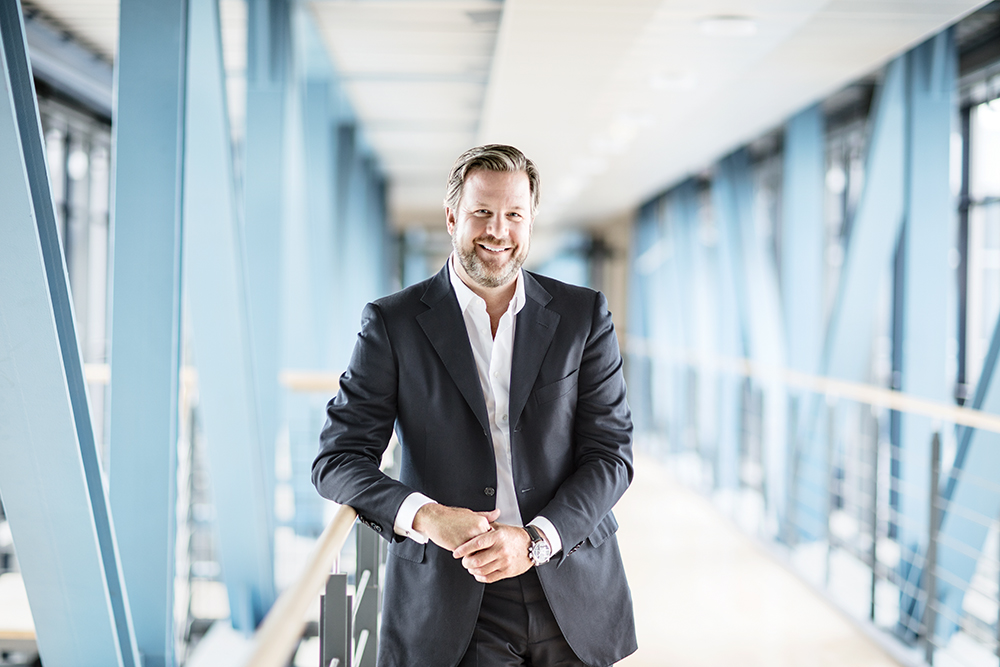
“So we’re in a much more comfortable position to look at the future. We’ve gone into asset management, improved our asset liability management and increased the duration. We’ve also decreased complexity throughout our portfolio and in our structure, integrated our direct insurance business into our main brand, sold our operations in Eastern Europe and decreased the number of shareholders in our legal insurance company, from six to two.
“All of those things took a lot of the complexity out. This is important for a smaller, nationwide player, so we can keep up our agility and be more responsive to market changes.”
While last year was anything but straightforward, given the COVID-19 pandemic and its largely detrimental effects on most businesses the world across, Oliver maintains that Gothaer used it as an opportunity to reset and rethink its strategies, and ultimately emerge stronger than ever.
“All of the improvements that we’d already begun really helped us get through this current crisis,” he reveals. “We think that the dynamics of the industry will increase dramatically in the future, so we as a company have to be capable of responding to that quicker than our competitors. If you look at the pandemic and how it evolved, it shows how important it is to respond to market changes. It gives a good impression of how quickly Gothaer was able to react and act in the crisis.”
We’ve gone through the portfolio to think about what we could do in order to be more than insurance, and we’re coming up with huge initiatives to broaden our spectrum.
A particular point of pride for Oliver is that Gothaer offers customers a tailored experience that larger companies aren’t able to. “The heart of our industry and the heart of our internal DNA fit very well together,” he says.
“We’re a medium-sized insurance company, made for medium-sized companies. The brokers and customers feel that we interact with them on eye level, which is very relevant to the players that we deal with. We also have huge capabilities in underwriting, which is even better than the larger players, and we understand risks better. We don’t just go out there and tell them what we insure at what price – we interact with our customers and discuss what we can do to mitigate risk and make sure it is being managed accordingly, as well as ensure that insurance premiums are low.”
Indeed, Oliver sees Gothaer’s size as an enormous benefit, especially given analysis of trends over the past decade, which place smaller companies as the core drivers in the stock market.
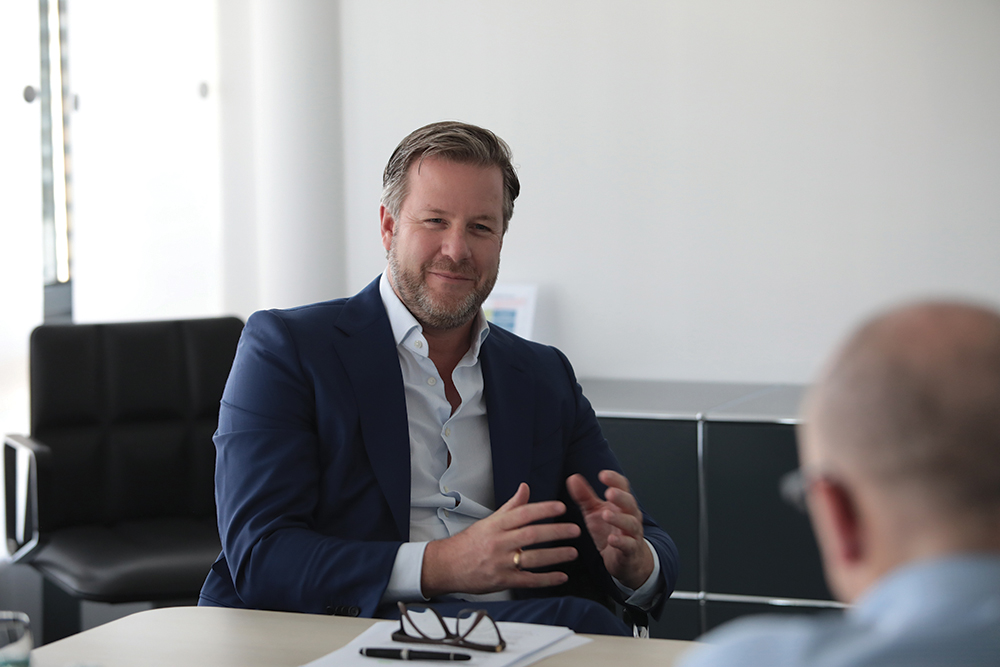
“Our underwriting capability is one of our unique value propositions, but what sets us apart is also the compactness of our firm, which helps us to move more quickly towards market dynamics and opportunities,” he says.
“With respect to the insurance sector, the market capitalisation or total return to shareholders, depending on the perspective, the value is really driven by local, smaller players and ones that are focused on P&C. Our market share is already pretty high, but our reputation is even higher. We’re also looking at a more industry-focused approach, dividing our core industries and exploring what specific needs they have, with respect to insurance, but also with respect to an extended value chain. We’ll be investing in industry solutions – and ensuring we determine the specific needs of each.”
Also integral to the success of the entire operation at Gothaer is the relationship with partners such as SAP, Funk and Ecclesia Holding that share the same values and priorities. For example, the usage of SAP software is a vital part of Gothaer’s IT-strategy with the company implementing a new innovative and holistic central reporting system based on SAP HANA. To guarantee flexibility and scalability this architecture is running completely on a Hyperscaler Infrastructure.
Oliver also says that COVID-19 highlighted the benefits of having a strong support network. “Partnerships are incredibly relevant,” he insists. “The relationships we’ve built over the past decade have been very important, because we can interact more quickly, due to the fact that we know our partners will support us.
I believe the importance of digitalisation is still underestimated, but it’s changing everything.
“Specific to the German market is business interaction and contingency insurance, which had a bit of difficulty in terms of whether the pandemic was insured or not. We had a fairly quick agreement with our reinsurance partners on how we would cover these, and whether they would go along with a fast solution for our customer base, because when we went into the first lockdown a lot of them needed help quickly. It was a good basis with our reinsuring companies to settle these questions promptly and offer a solution. So, by having very good relationships with our reinsurance partners, we could effectively manage our customer base.”
Oliver goes on to add that Gothaer is also cultivating a new and slightly unconventional type of partnership – with other insurance groups. “For example, in our health business, we’ve formed a joint venture with other large health insurance groups,” he shares.
“That way, we make sure that we can help our customers with heavy diseases, because once we have a large customer base, we can make agreements with hospitals on a local level so that they are treated well and fast. We’ve gathered four large health insurers together – it’s about connecting strengths, building networks and developing an ecosystem. From an external perspective, we’re trying to create a customer experience that is about more than insurance. From an internal perspective, it’s to maintain customer relationships and gather data in order to play a bigger role in meeting their needs.”
Gothaer is embracing technological advancements and using them to its advantage. “I believe the importance of digitalisation is still underestimated, but it’s changing everything,” Oliver says.
“It is driving the change in our customer base and their risks. “It’s changing the way we can approach our customers, and the way we can better understand pricing and better understand how we can help our customers manage the situation, once risks have evolved.
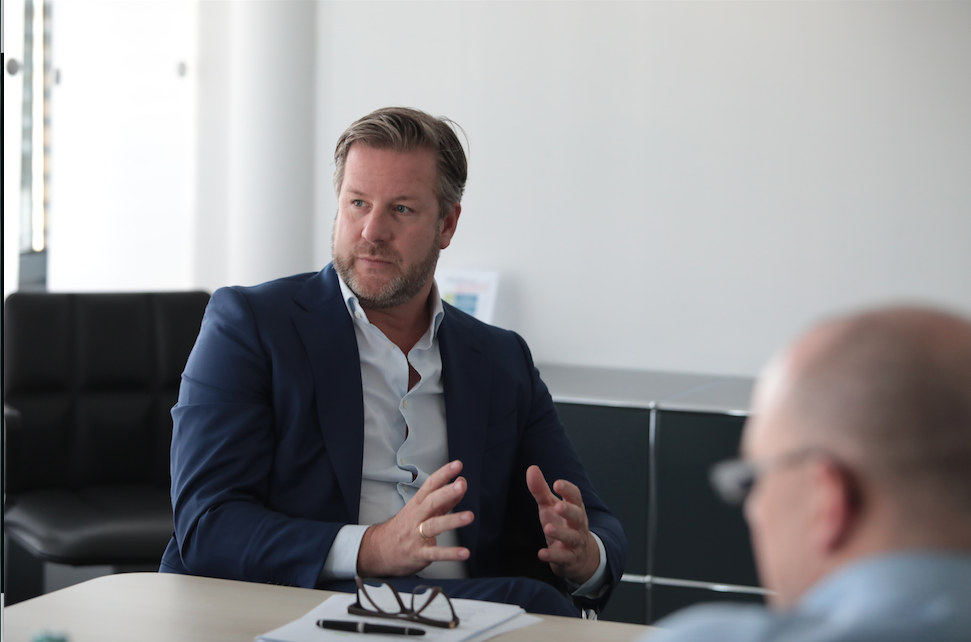
We’ve come up with a system that is serving better, and faster underwriting at the point of sale, especially for small companies. We’re also expanding our networks into claims management to help our company go through a faster claims process and recover more quickly from damage.
“But it also needs to be clear, especially in the segments in which we work, that human interface will always play a role – we can’t neglect the fact that most of the things we do with our customers are based on human relationships.
“So digitalisation should also serve to give room for creativity and for building and maintaining our relationships with our brokers and customer base.” Oliver explains that now, as Gothaer looks towards the future, the aim is to evolve into a business that goes far beyond the traditional expectations of what constitutes an insurance company.
“We’ve gone through the portfolio to think about what we could do in order to be more than insurance, and we’re coming up with huge initiatives to broaden our spectrum,” he points out.
“We have a few enablers – one is agility, another is digitalisation and the third is that we have a very strict view on our financial capabilities and portfolio, to make sure that we earn all the investment needed to put the strategy in place.”
And by placing sustainability at the centre of its plan for developing further, Gothaer is ensuring that it sets itself apart from competitors while at the same time continuing to positively contribute to society.
“The role of insurance in the business sector is to enable companies to take risks that they wouldn’t take without us,” Oliver says. “It is essential that we can provide these companies with the trust that, once risks occur, we will be there for them and they can take the risks.
“We did that in the early to mid-90s by insuring alternative energies. We were the first insurer in Germany to do so. We’re now the largest player in Europe, with respect to the wind and alternative energies in insurance.
“We’re taking this as a piece of our strategy to be one of the most sustainable insurance groups in Germany, and to drive sustainability not only in our company, but also throughout society.”
Proudly supported by:
